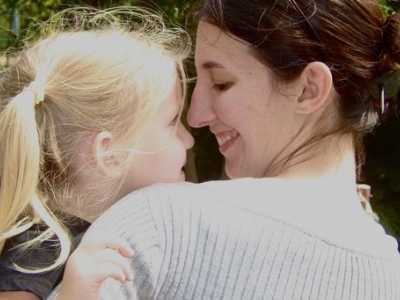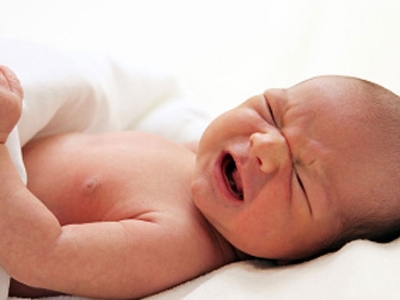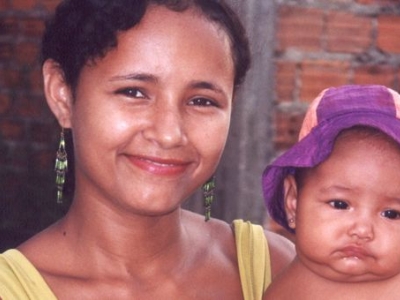
Helping children feel safe and secure
Dr Yixin Jiang Xu explains the psychology of attachment from a Christian perspective.
The other day, I was in the bathroom when my toddler came running towards me with a big grin on her face and building blocks in her hands. I said, ‘Mama needs to use the toilet. I’ll play with you later’. She replied, ‘Play with blocks here!’ and proceeded to drop the blocks on the bathroom floor.
I’m sure many parents can relate to my experience: it seems we can’t even go to the toilet in peace! But this scenario perfectly illustrates the natural desire that young children have to be near us, their parents, often regardless of context.
In this article I will use attachment theory (a concept from psychology) to help explain why our children want to be close to us, and how we can help them to feel safe and secure in our relationship with them.
The beginning of attachment
All humans are born with a fundamental need for attachment: we desire a long-lasting relationship with a safe, available and caring significant other person. A person’s need for attachment starts at birth and is most intense during the early years of childhood.
Newborn babies are completely dependent on their caregivers to meet their needs, so attachment is an in-built biological mechanism to ensure their survival. It is amazing how God has designed instincts and behaviours that serve to strengthen the natural bond between parent (or caregiver) and child. Hormones and pheromones enable the ‘falling-in-love’ experience for both baby and parent. Those chubby cheeks, wide-set eyes, smiles and coos serve to attract our attention and affection. When babies feel unsafe, distressed or threatened, their natural responses—crying, eye contact and reaching out—get their caregiver’s attention to ensure they receive physical and emotional care.
Parents (or caregivers) can help meet their children’s attachment needs by fulfilling two important roles: we need to be a safe haven and a secure base. If we invest in this kind of relationship with our children in the early years, it will help them to feel safe and secure for life.
Parents: a safe haven
Children need their parents to be a safe haven: a place of comfort and refuge where they can retreat when they are feeling scared, unwell, distressed or vulnerable. Parents are like safe harbours, where children can find shelter from the wind and the waves.
Firstly, we offer our children physical protection, keeping them safe from dangers (as far as it depends on us). But research shows that children also have a fundamental need for ‘contact comfort’—physical affection in the form of touches, kisses, and cuddles. Infants and toddlers need a lot of this soothing touch when they are upset from physical discomfort or emotional distress. Personally, I have found that when my toddler is upset or clingy, responding to her with a quick hug or kiss—even when I am busy with other chores—is the quickest way to calm her.
As safe havens, children also need our help to regulate their emotions. Young children are unable to do this by themselves and can easily feel overwhelmed by intense feelings of distress.
Parents can help bring about emotional relief as we give children a safe space to express their feelings, and as we show empathy and put their feelings into words. For example, when my toddler is scared of something (lately, it’s the vacuum cleaner!), has hurt herself or wants to sleep, I put those feelings into words for her: ‘You’re scared/hurt/tired etc.’. This empathy helps her to calm down and teaches her new words to express how she’s feeling.
Being a safe haven for our children—no matter what age—means that they trust we are available and will respond to them in their time of need.
Parents: a secure base
Children also need their parents to be a secure base—a launching pad from which they can set out to explore the world. Even as they take their first steps, children need to know that we are their safety net, their rock of unyielding support and their ‘cheerleader’. There is almost a ‘dance’ that happens between us and our children: they come back to us to refuel and recharge, then set out again to play, learn and explore.
Infants and young toddlers generally like to stay very close to their parents, with only brief periods of moving away to explore. My toddler is certainly never far from me throughout my day. At her age, she needs me to be fully present (and not always on my smartphone!) for her to fully enjoy her play.
As children grow older and feel more secure, they will start to play and explore more independently. However, they will still regularly check to see if we are present and available to them.
You might see this at the playground when kids often look or run back to their parents as they play just to ‘check in’.
It is important for our children to keep going out and coming back to us in order to feel safe and secure. Research shows that children who feel secure are more likely to engage their curiosity, creativity and imagination; have longer attention spans; develop higher levels of confidence and self-esteem; and are more independent in the classroom. Eventually, the ‘comings back’ will happen less often, and the ‘goings out’ will become longer and further away—it is then that our kids are on the path to becoming fully independent adults!
God as our ultimate attachment figure
It is not easy to be our children’s safe haven and secure base amid the busyness of life—when we have competing responsibilities to juggle, when we face distractions, tiredness and stress. The reality is that we will not always be available to soothe our children’s every tear or welcome them each time they come back to us.
As Christians, these moments can remind us that God is the ultimate safe haven and secure base, both for us and for our children. He is always available to us, and he readily comforts us when we are overwhelmed.
The Triune God—who exists in relationship as Father, Son and Holy Spirit—models attachment perfectly. As our heavenly Father, he meets our attachment needs. As the psalmist writes:
‘God is our refuge and strength, an ever-present help in trouble.’ (Psalm 46:1)
Likewise, Jesus promised:
‘Come to me, all you who are weary and burdened, and I will give you rest.’ (Matthew 11:27)
When we feel insecure, frustrated and stretched to the limit as parents, we can come to God as his beloved children. Our heavenly Father provides all that we need: comfort, refreshment, security, unconditional love and wise guidance. In the same way, we can point our children to God as their perfect heavenly Father—their safe haven and secure base. As human parents we are but an imperfect model of God’s love for our children. It is God who will unfailingly meet all their needs—in terms of attachment and so much more.
For further reading on this topic, I recommend the book ‘Raising a Secure Child’ by Kent Hoffman, Glen Cooper & Bert Powell (Guildford Publications, 2017).
---
Dr Yixin Jiang Xu is a stay-at-home mother of a two-year-old girl and has a PhD in psychology. She runs family education seminars at First Light Care—a Christian counselling and education organisation serving the Chinese community. She and her family attend St Paul’s Anglican Church, Carlingford.
For more articles from Growing Faith, subscribe to our monthly e-newsletter.
To hear about the latest books and resources from Youthworks Media, subscribe here.








